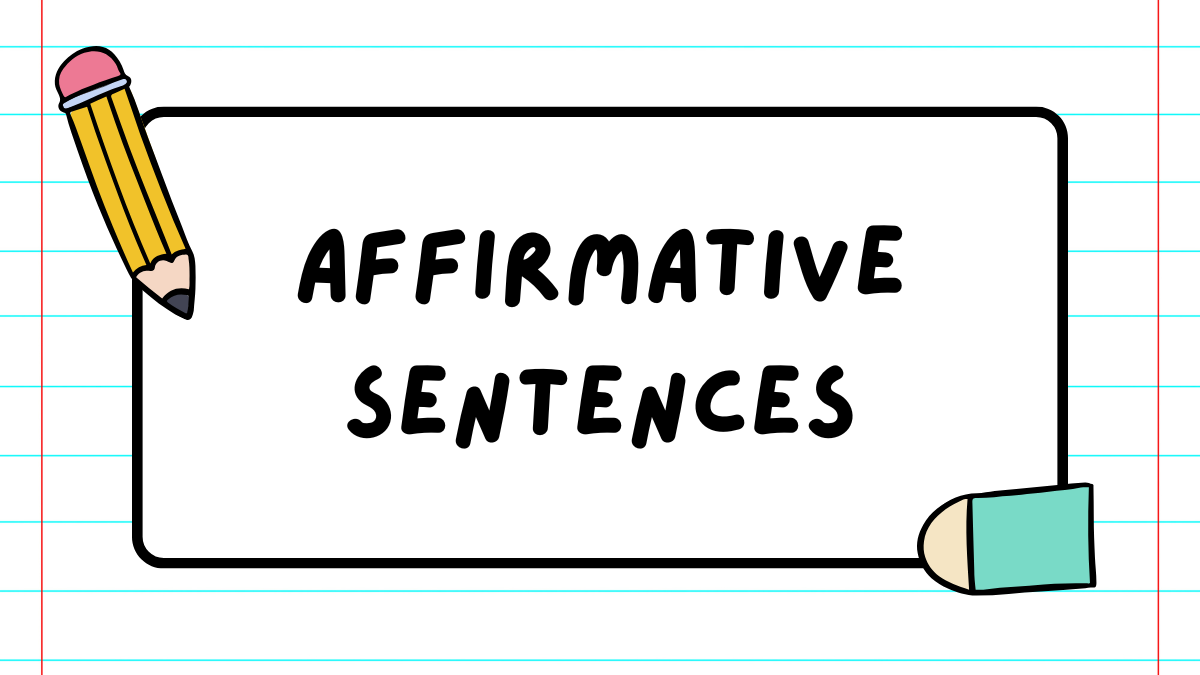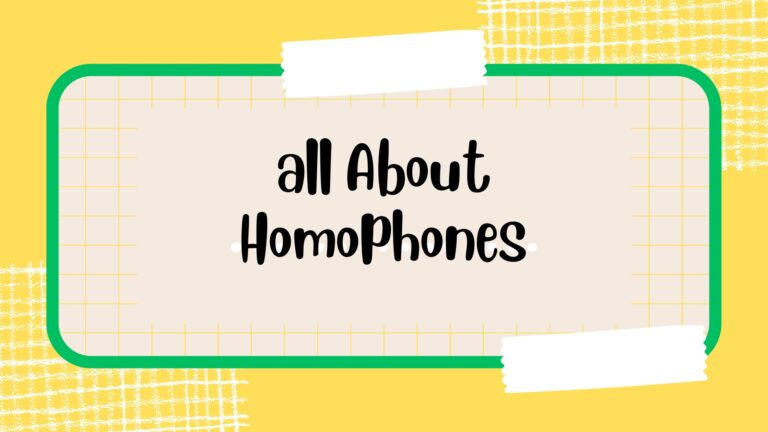70 Affirmative Sentences List
Affirmative sentences enhance communication by clarifying thoughts. This article explores their significance, offering examples and tips for effective usage.
What Are Affirmative Sentences?
Affirmative sentences state information clearly and positively. They help us connect and understand each other better, unlike negative sentences. For example, “The sun shines brightly today” provides both facts and a vivid image. These sentences also influence our mindset by encouraging positivity.
Phrases like “I am capable” boost our growth and resilience. This positive approach benefits personal development and strengthens relationships, as uplifting words inspire others. In the end, affirmative sentences are powerful tools for empowerment and effective communication, changing how we engage with the world.
Examples of Simple Affirmative Sentences
Here are affirmative sentences:
1. She waters the plants.
2. I clean my shoes.
3. They play cricket after school.
4. He reads the Quran daily.
5. We enjoy long drives.
6. The boy feeds the dog.
7. I make tea every morning.
8. She visits her aunt on weekends.
9. He washes his car on Sundays.
10. The baby smiles at her.
11. We walk to the masjid.
12. They repair the broken fence.
13. I eat mangoes in summer.
14. She likes classical music.
15. He watches cartoons at night.
16. The teacher checks the homework.
17. I write in my journal daily.
18. We decorate the room.
19. She learns new words.
20. He throws the ball.
21. They bring gifts for everyone.
22. I open the shop at 9 AM.
23. She enjoys painting in her free time.
24. He closes the gate gently.
25. We celebrate birthdays with cake.
26. They visit historical places.
27. The cat sleeps on the sofa.
28. I ride my bike in the evening.
29. He helps the old man.
30. She speaks kindly to others.
31. I go for a walk every morning.
32. They dance at the wedding.
33. We fix the broken chair.
34. He buys bread from the bakery.
35. She cooks biryani on Fridays.
36. I sharpen my pencils.
37. The wind blows gently.
38. They sing songs together.
39. We plan a picnic this weekend.
40. He picks flowers for her.
41. She drives to the office.
42. I read novels at night.
43. The kids laugh loudly.
44. We go shopping in the evening.
45. He eats lunch at 1 PM.
46. She looks at the stars.
47. I take notes in class.
48. The boy climbs the tree.
49. They enjoy ice cream.
50. We wait for the bus.
51. She takes care of her grandmother.
52. He joins the football team.
53. I brush my teeth twice a day.
54. The sun sets in the west.
55. They arrive on time.
56. She draws beautiful sketches.
57. I send messages to my friend.
58. He delivers the packages.
59. We clean the classroom.
60. The bird sings sweetly.
61. She ties her shoelaces.
62. I wear warm clothes in winter.
63. He plays the guitar.
64. They water the garden.
65. We cross the road carefully.
66. She folds the clothes neatly.
67. He smiles at the camera.
68. I enjoy peaceful mornings.
69. The train leaves at noon.
70. They light candles during load shedding.
Importance of Affirmative Sentences
Affirmative sentences are essential in everyday communication because they express positive statements, facts, ideas, and actions clearly. They help us share information directly and build understanding between people.
Whether in speaking or writing, affirmative sentences form the foundation of language, allowing us to describe events, express thoughts, or convey emotions in a straightforward and constructive way. Mastering them is key to developing strong communication skills in English.
Common Mistakes with Affirmative Sentences
Affirmative sentences can confuse writers, especially with subject-verb agreement. For example, saying “The group of students are excited” is wrong; it should be “The group of students is excited.” These mistakes can hurt clarity and credibility.
Redundancy is another problem, where extra words weaken sentences. For instance, saying “absolutely essential” is unnecessary; just “essential” works. Simplifying statements, like changing “She is a very talented artist” to “She is a talented artist,” makes them clearer and more engaging. By focusing on these details, writers can turn simple sentences into strong statements.
What are affirmative sentences?
Affirmative sentences are statements that express a positive assertion or agreement, indicating that something is true.
How can I use affirmative sentences in everyday conversation?
You can use affirmative sentences to convey facts, opinions, or feelings, such as “I love reading books” or “She enjoys playing soccer.”
Can you provide examples of affirmative sentences?
Sure! Examples include “The sun rises in the east,” “He is a talented musician,” and “We will go to the park tomorrow.”
Are there different types of affirmative sentences?
Yes, affirmative sentences can be simple (e.g., “She runs fast”) or complex (e.g., “Although it was raining, we went for a walk”).
How do I convert negative sentences into affirmative ones?
To convert a negative sentence to an affirmative one, remove negation words like “not” or “never.” For example, “She does not like ice cream” becomes “She likes ice cream.”






